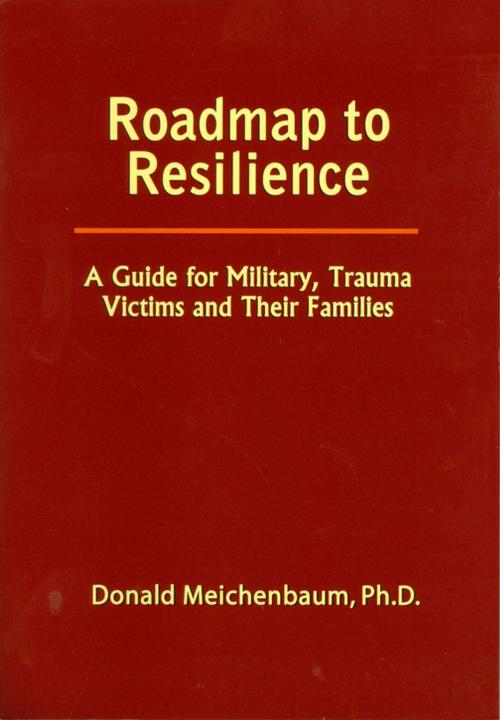Roadmap to Resilience
A Guide for Military, Trauma Victims and Their Families
Nonfiction, Reference & Language, Education & Teaching| Author: | Donald Meichenbaum | ISBN: | 9781935810216 |
| Publisher: | Crown House Publishing | Publication: | January 1, 2012 |
| Imprint: | Crown House Publishing | Language: | English |
| Author: | Donald Meichenbaum |
| ISBN: | 9781935810216 |
| Publisher: | Crown House Publishing |
| Publication: | January 1, 2012 |
| Imprint: | Crown House Publishing |
| Language: | English |
For the military veteran or anyone who has experienced a traumatic event, returning to normal living can be a challenge. Be that as it may, even after events such as natural disasters, accidents, or one of intentional human design(e.g. combat, a terrorist attack, a sexual assault, etc.), approximately 70 to 80percent of individuals who are impacted adjust successfully. These individuals demonstrate resilience, and in some instances, even post–traumatic growth. But the remaining percentage will evidence lingering clinical disorders and adjustment problems, such as PTSD, anxiety, depressive, and substance abuse disorders that can result in suicidal acts, aggressive behavior, and divorce. Roadmap to Resilience includes over 100 ways to develop individual and family resilience-bolstering action plans to help those experiencing adjustment problems. In addition, it includes numerous narrative examples of successful coping from resilient individuals, self-improvement activities, and a comprehensivere source guide designed to help the reader locate the exact information they need to address their situation. This guidebook highlights ways that returning service members can successfully reintegrate into civilian life and how other trauma victims can cope with loss. Clinicians will find it an invaluable resource for translating evidence-based interventions into specific guidelines for their clients.
For the military veteran or anyone who has experienced a traumatic event, returning to normal living can be a challenge. Be that as it may, even after events such as natural disasters, accidents, or one of intentional human design(e.g. combat, a terrorist attack, a sexual assault, etc.), approximately 70 to 80percent of individuals who are impacted adjust successfully. These individuals demonstrate resilience, and in some instances, even post–traumatic growth. But the remaining percentage will evidence lingering clinical disorders and adjustment problems, such as PTSD, anxiety, depressive, and substance abuse disorders that can result in suicidal acts, aggressive behavior, and divorce. Roadmap to Resilience includes over 100 ways to develop individual and family resilience-bolstering action plans to help those experiencing adjustment problems. In addition, it includes numerous narrative examples of successful coping from resilient individuals, self-improvement activities, and a comprehensivere source guide designed to help the reader locate the exact information they need to address their situation. This guidebook highlights ways that returning service members can successfully reintegrate into civilian life and how other trauma victims can cope with loss. Clinicians will find it an invaluable resource for translating evidence-based interventions into specific guidelines for their clients.















